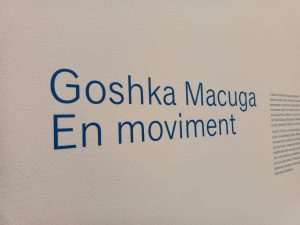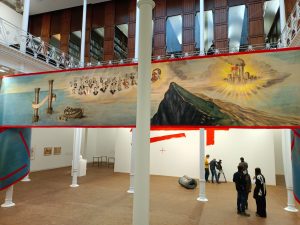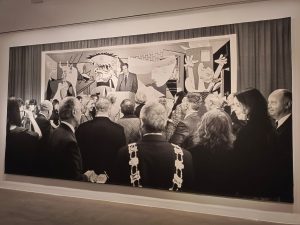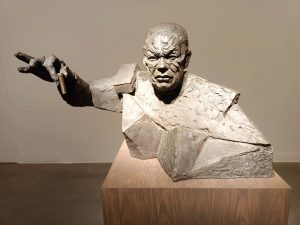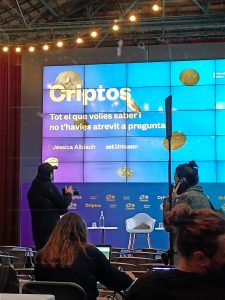Information source: Fundación Tàpies
The Fundación Tàpies is hosting, from 15 March to 25 September, the work of the Polish artist Goshka Macuga, born in Warsaw in 1967. In this exhibition, entitled In Movement and co-produced by MUSAC (Museo de Arte Contemporáneo de Castilla y León) and curated by NeusMiró, the artist revisits the relationship between art, power and narratives around events and figures from history.
Her pieces take the form of large installations, specifically three that have been particularly significant in the artist’s career: Plus Ultra, from 2009, The Nature of the Beast (2010) and Untitled (2011). At the centre of each of these three installations is a tapestry, around which other works and documents are also articulated. In each of these three installations she mixes pieces of her own creation with material found in archives and exhibitions, thus proposing new approaches to inherited accounts of historical events and figures.
The artist, who left Warsaw in 1989, the year of the fall of the Berlin Wall, explains that she comes from a country where one had to support the Russians, but that her family raised her in hatred of that country. According to Macuga, wealth in Russia is distributed among Putin’s supporters like a drug cartel, and in her opinion she has started collecting art to launder money. Macuga also expresses her concern for the more than one and a half million Ukrainians who have arrived in Poland.
The artist, fragile in appearance but forceful in her gestures and speech, kindly attended to all the media who came to admire her work.
Photos by: Silvia Palá Intérpretes

